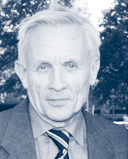
Uwe M�ller, member of the Club of Rome and co-initiator of the Desertec Project, about the differences in solar energy, getting electricity from the Sahara to Europe and why the ambitious project is a win-win-game.
The DesertTec Foundation is based on an idea the Club of Rome presented in the early 70�s. Why is it so hard to raise awareness for alternative energy sources?
Main reasons for acting reluctantly: Rigidity of given energy structures and vested interests. Structural changes and breakthrough need long-term perspective and investment, lately impeded by prevailing short-term capital interest.
�The deserts on earth receive more energy within 6 hours from the sun than the entire human population uses within one year�, says Gerhard Knies, chairman of the board of directors of the DeserTec Foundation. Once again: What�s keeping us from setting up billions of solar panels in deserts and i.e. use the energy for desalination of sea water?
Deserts are available almost around the world. 90 % of humanity could have access to desert power. CSP (concentrating solar power) is a technology free of C02-emissions, it is proven and available.
Dual use: waste heat can be used for desalination of seawater..
Wherein lies the difference between solar-thermal power and photovoltaic systems? And: What happens if the solar-energy is not sufficient (clouds, at night) to produce the required amount of energy?
Compared with photovoltaics CSP-plants have the advantage of storing solar heat cheaply and efficiently so power can be delivered on demand. Gas or bio-fuels can be used as a stopgap source.
How is the energy transported from the Sahara desert to Europe?
Losses of power-transmission by HVDC-technology amounts to only 3 % per 1000 km. Transmission lines cause no electro-smog, in addition they can be laid underground.
The technology seems to be in place. What are currently the biggest obstacles to be overcome?
The main challenge constitutes the construction of the border-crossing grid infrastructure affording the will and the capacity to closer political co-operation in the region, urgently needed in the EU-MENA region anyhow if we want to have socio-economic development and political stability. Co-operation in a EU-MENA DESERTEC project, if understood as a win-win game for all participants, may act as a conducive stimulus in this respect.
Mid July 2009 12 companies, among them Deutsche Bank, E.ON und M�nchner R�ck have issued a �memorandum of understanding� regarding the foundation of a DeserTec Industrial Initiative. How important is such a statement?
The creating of the DESERTEC Industrial Initiative in July 2009, two or three years ago was almost unthinkable. Now, the decision of these important and powerful players to go for this option shaping a new sustainable energy structure, shows the validity of this endeavour. And, to be reminded: this EU-MENA project should give incentives to do the same in other parts in the world, as a global sustainable energy architecture is urgently needed.
You can find more information online: http://www.desertec.org/en/concept/redpaper/
Uwe M�ller is political economist. From 1983 until 1998 he was the director of the International Institute for Politics and Economics in Hamburg. Since 1986 he is a member of The Club of Rome, acting from 1998 to 2007 as its Secretary General. Uwe M�ller is also co-initiator of the DESERTEC-project.
Desert Tech. Clean Power from the Sahara for Europe
Uwe M�ller, Club of Rome
Thursday, October 15, 2009; 14.45h
Culture and Convention Centre KKL Luzern












